How to choose engine oil? Oil lecture hall tells you (part two)
[XCAR car original]
In the last issue of "Engine Oil Lecture Hall (I)", the author explained to you what engine oil is, what is the meaning of engine oil label, and how to distinguish between true and false engine oil. Some friends may ask, saying that there are many doorways in this oil, so how should we choose? Don’t worry, we will continue to talk to you about engine oil in this issue of Engine Oil Lecture Hall (Part II).

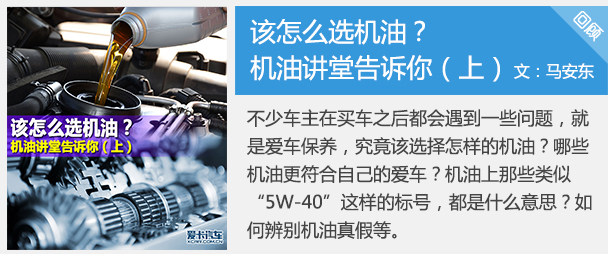
The first part helps everyone to better understand the engine oil through simple introduction and parameter analysis. This article will mainly combine theoretical knowledge with practice to talk about how to choose engine oil. As the so-called "suit the remedy to the case", the reason why we change the oil is the same. If we want to choose the right medicine, we must first understand what the "symptom" is. Everyone knows that engine oil is engine lubricating oil, so its function is only as simple as lubrication? Below, the author will give you a brief introduction to the role of engine oil, which is also convenient for us to "prescribe the right medicine".
1. What is the function of engine oil?
Engine oil plays an important role in the engine. As long as the engine is running, the engine oil will not stop flowing, and in this flow, it will complete its mission. So what are the main functions of engine oil?
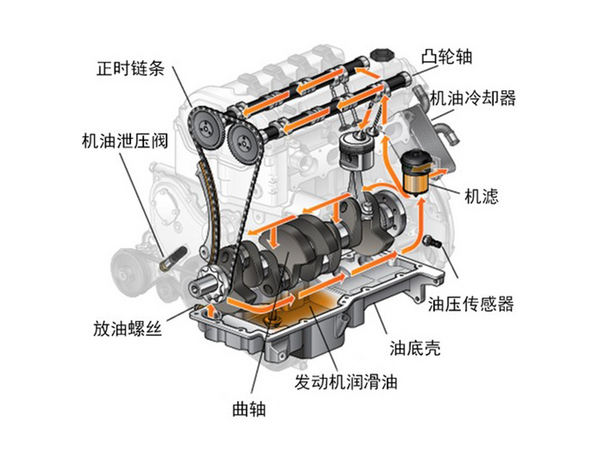
1, lubrication, reduce wear and tear
Lubricating oil, of course, the first task is lubrication. When the engine is running, high-speed friction will occur on the surfaces of various metal parts. The function of engine oil is to form an oil film between parts through flow, reduce friction resistance and reduce wear, thus prolonging the life of the engine.
2. Cleaning function
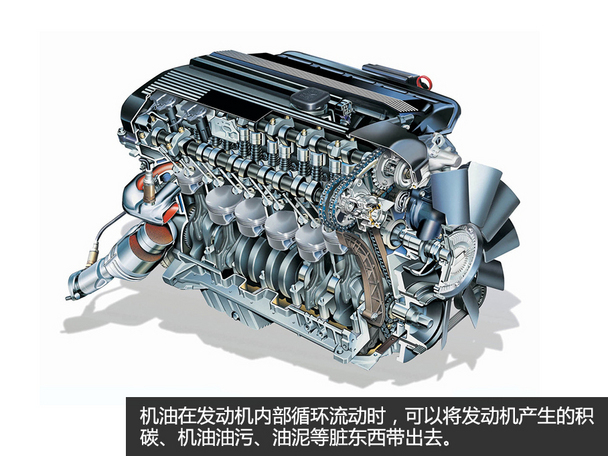
When the engine oil circulates in the engine, it can bring out the carbon deposit, oil stain, sludge and other dirty things produced by the engine, and finally settle in the oil pan to prevent the dirty things from re-entering the engine, thus achieving the cleaning function.
3. Protective effect
In addition to lubricating the engine, engine oil can also play a protective role through its own "oiliness". For example, engine oil adheres to the surface of metal parts for a long time, so that the metal parts are isolated from the air, which can play a role in rust prevention and oxidation resistance. In addition, the oil adheres to the gap between parts, and the oil film formed can make the parts better sealed and reduce the possibility of leakage.
4. Auxiliary cooling

With the continuous circulation and flow of the engine in high-speed operation, the engine oil can take out part of the heat in the engine and play an auxiliary cooling role.
5. Buffering effect
Engine oil can bear part of the impact load transmitted by the bearing, and at the same time, it can also play a certain buffering role for the mutual impact between components.
Second, how should I choose engine oil?
The above introduces some basic knowledge about engine oil, so what should we do in the process of actually selecting and buying engine oil? The following editor will give you a few tips and introduce how to choose the right engine oil in different categories.
1. The 4S shop told me that this engine oil is special. Is it true?
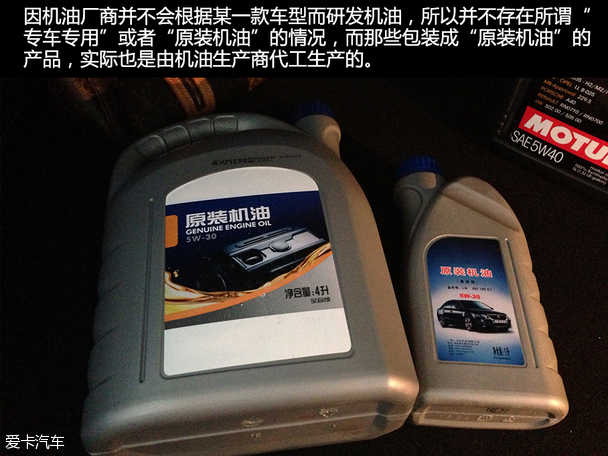
First of all, engine oil only has the similar industry standards such as SAE and API mentioned above. Because engine oil manufacturers don’t develop engine oil according to a certain model, there is no such thing as "special vehicle" or "original engine oil", and those products packaged as "original engine oil" are actually produced by engine oil manufacturers, even commercial engine oil. The reason for this phenomenon is just that automobile manufacturers pursue profits. Secondly, as long as you choose the engine oil that meets the vehicle’s use environment, it is appropriate. So don’t be superstitious about those "special engine oil" statements.
2. What kind of engine oil is used in winter?
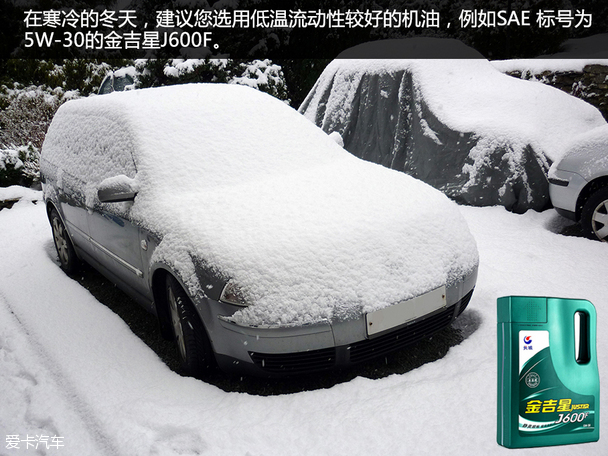
Before the cold winter comes, if you happen to need to change the oil, it is recommended that you choose a type with good low temperature fluidity. For example, if you are in the cold northern region, it is recommended that you choose the product with the label of 0W, such as Jinjixing J700U(0W-40/0W-50). If you are in the south where winter is not cold, it is enough to choose products with the label of 5W and 10W. For example, Jinjixing series J500, J600 and J700 all have products with 5W-40 and 5W-30.
3. What kind of engine oil is used in summer?

Although the temperature is high in summer, it is still a drop in the bucket compared with the high temperature of about 100℃ in the engine, so the selection of engine oil in summer is not too affected by the environment. At present, the viscosity of synthetic engine oil is less affected by temperature, and the engine produced in recent years has newer technology and more precise components, so it doesn’t need too much oil viscosity. In most parts of China, you can only choose SAE 30 products. If your engine is old or worn, it is recommended that you choose SAE 40 products.
4. My car is turbocharged. What kind of engine oil should I use?
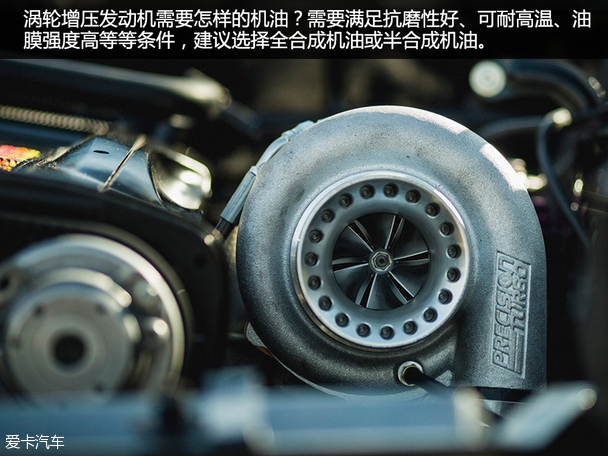
We know that the turbocharged engine with the same displacement is more powerful than the naturally aspirated engine, and its components are more prone to wear, which is beyond doubt. So what kind of oil does a turbocharged engine need? Turbocharged engines need oil with good wear resistance, high temperature resistance, high oil film strength and so on. It is suggested to choose all synthetic engine oil or semi-synthetic engine oil, because synthetic engine oil is the best choice for turbocharged vehicles because of its small temperature change and strong high temperature resistance, which can ensure the oil film strength.
5. synthetic engine oil is so good, is it suitable for all cars?
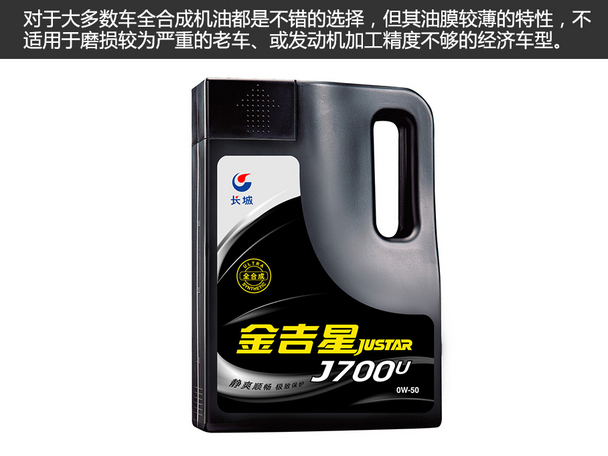
Theoretically, all cars can be used in synthetic engine oil. Synthetic engine oil is favored by many car owners because of its good wear resistance and stable stickiness, but are all cars suitable for all synthetic engine oil? The answer is no, for most cars, all synthetic engine oil is a good choice, but its thin oil film is not suitable for old cars with serious wear and tear, or economic models with insufficient engine processing accuracy, because the gap between engine parts of these two types of cars is usually large, and the thin oil film of full synthetic oil can not play a good role in lubrication, resulting in unnecessary wear, resulting in the situation that the anti-wear effect is not as good as that of mineral oil. Therefore, although "flour and rice" is delicious, it may not fill your stomach. Not all cars in synthetic engine oil are suitable.